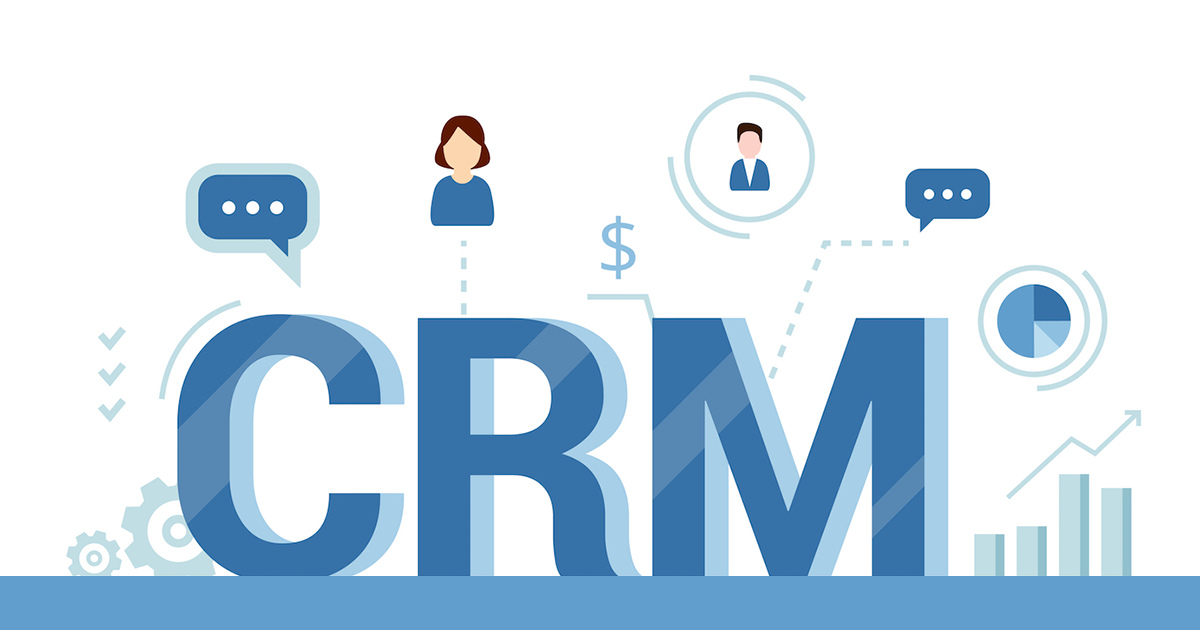Irrespective of the company’s size, everyone has one primary goal: attract and keep the customer. Most businesses have already realized the importance of CRM (Customer Relationship Management) software to track and connect with their customers.
In fact, 87% of businesses today use cloud-CRM compared to 12% in 2008.
However, with hundreds of CRM software out there, choosing the best one based on features and functionalities can be challenging.

Looking for CRM Software? Check out SoftwareSuggest’s list of the best CRM Software solutions.
To make things easier for you, we have compiled a list of functions that your CRM must-have. Let’s look at them.
10 Must-Have CRM Functions
Before purchasing a CRM, check with the vendor if they offer these features that can help you grow your business.
1- Lead Management
Leads are the lifeblood of any business. Your CRM software should help you capture leads from multiple channels, such as web forms, phone calls, social media, and emails. Lead management in CRM should also allow you to score and qualify leads based on their likelihood to convert. You can even track leads through the sales cycle and create targeted marketing campaigns for them.
Ask your vendor:
- How many leads can I store in the CRM?
- Can I create custom rules to qualify and score leads?
- Is there a way to visualize leads at each stage of the sales funnel?
2- Contact Management
Contact management is all about storing customers’ data, including their name, phone number, email address, and interactions with your business (both online and offline). It helps save your sales representatives’ time searching through the customer’s details while interacting with them.
Ask your vendor:
- How many contacts can I store in the CRM?
- Are there any extra charges to store additional contacts?
- Can I customize the details I can store?
- Can I save a custom message for each customer?
3- Workflow Automation
One of the key CRM functions is the ability to automate tedious tasks and save time. With workflow automation, you will be able to create intelligent workflows to automate repetitive tasks, such as following up on leads, raising invoices, sending emails, and log customer interactions. It helps save time, avoid duplicate entries, and improve communications.
Ask your vendor:
- Are there any limitations on how I create my workflows?
- Is this feature available in your free or paid version?
- Can you assist me with creating rules for workflow automation?
4- Third-Party Integration
Businesses use multiple tools simultaneously. When you connect your CRM software with other business tools, you get a holistic view of your business operations. It also saves a lot of time that you would otherwise spend switching between tools.
For example, when you integrate your email marketing tool with your CRM, you will better understand how your contacts respond to your email campaigns without leaving your CRM.
Ask your vendor:
- Which tools can I integrate?
- Do you provide API to integrate third-party tools?
5- Marketing
When it comes to segmenting and nurturing leads, marketing-related inquiries can be a goldmine. You can use them to create hyper-personalized marketing campaigns and attract potential customers. The marketing function in the CRM should cover content marketing, social media marketing, and automation.
Ask your vendor:
- Which marketing features are included in the CRM?
- Can I extend the marketing functionality using third-party integrations?
- What kind of marketing tasks does the software support?
6- Reporting and Analytics
Reporting and analytics are a vital part of any business. They help determine if your workflows are performing better or need improvement. Your CRM should allow you to measure (but not limited to) profitability, customer retention rate, closed leads, average order value, and the effectiveness of marketing campaigns.
Ask your vendor:
- Are the reports visually interactive?
- Can I drill down to each report?
- Which analytics and reporting capabilities available in the free version?
- Can I customize the reports and tracking capabilities as per my requirements?
- Are there additional charges to reporting customization
7- Pipeline Management
Pipeline management makes it easier for you to identify where in the sales funnel a particular deal is. You can even search or filter deals based on the stage and perform bulk actions, such as sending mass emails. This feature also helps you understand where most of your deals fall off so you can optimize the individual stage of the funnel.
Ask your vendor:
- What interactive elements and drill-down options does your software support?
- Can I use different colors for each stage of the sales funnel?
- Can I get an in-depth view of deals at different stages of the sales funnel?
8- Document Management
Document management feature in the CRM allows you to create, access, edit, and share documents from within the platform. Advanced CRM even lets you set document access and edit rights to ensure security. It also acts as a centralized hub for storing important documents and ensures all your employees have the necessary files required for doing their work.
Ask your vendors:
- What is the storage limit?
- What happens when you exceed the storage limit? What are the additional charges?
- How do you ensure data security?
- Can I integrate the CRM with third-party storage tools like OneDrive or Dropbox?
9- Forecasting
Forecasting is an essential feature that helps estimate your future revenue (and sales) based on present pipeline and past data trends. You can then use the insights to alter your marketing campaigns to meet your sales targets better. It also enables you to prepare data-driven strategies and make informative decisions about the future of your company.
Ask your vendor:
10- Quotes/Proposals Management
Quotes and proposal management is yet another vital CRM function. It allows you to create and send quotes to clients directly from your CRM software. You can even edit, revise, and customize quotes to meet your client’s currency and tax requirements. It also lets you share proposals with colleagues or supervisors for approval.
Ask your vendor:
- Do you provide customizable quote templates?
- Can quotes be auto-populated using data from excel sheets or PDF documents?
- Can you export quotes and templates in PDF or excel?
- Can I digitally sign quotes and proposals?
Wrapping Up
CRM is a vital part of any business. It allows you to manage customers’ details better and improve customer relationships. Ensure your CRM supports lead management, third-party integration, offers analytics, sales forecasting, and quotes management.
Did we miss any vital CRM function that helps grow a business? Have any queries related to the CRM functionalities? Let us know in the comments!
Also, don’t forget to check out the best CRM software in 2021!
Need Any Technology Assistance? Call Pursho @ 0731-6725516




